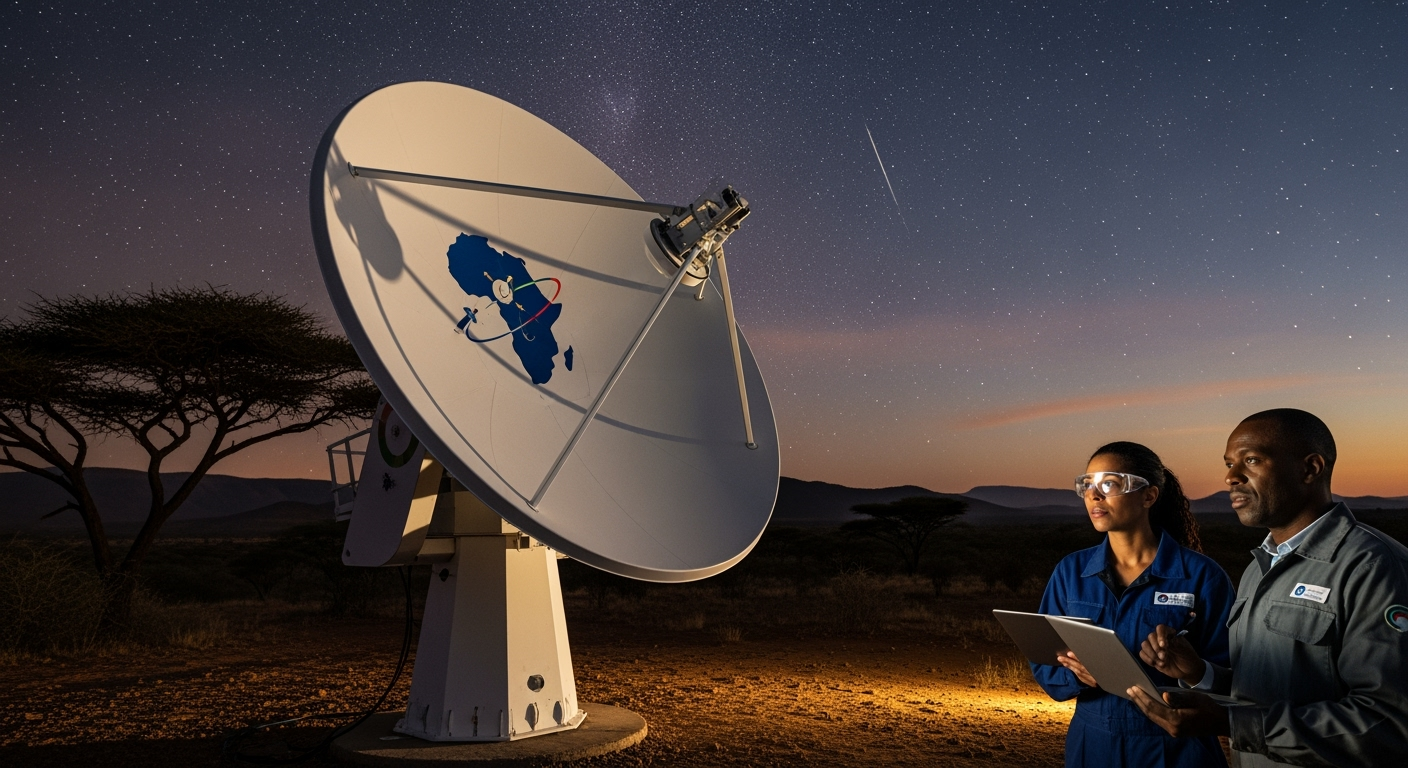Related Articles

The Hidden Danger: Unraveling the Complex Link Between Talc, Asbestos, and Cancer

The Hidden Sleep Divide: Why Women May Need More Rest Than Men





A new era is dawning above Africa, not of pure scientific exploration, but of pragmatic innovation as nations across the continent increasingly view space as a fundamental tool for socio-economic development. Far from a luxury, satellite technology is becoming a strategic necessity, directly addressing pressing challenges from food security and climate change to digital connectivity and national security, reshaping the continent's future from orbit down to everyday life.
For many African nations, space is not an abstract realm for moon missions or interstellar travel; rather, it represents a potent "means to an end" – a technological lever to uplift populations and foster sustainable growth. This philosophy marks a significant evolution from the early days of space exploration, when African countries primarily served as hosts for critical infrastructure aiding missions like the Apollo program. Today, the continent is actively building, owning, and operating its own space infrastructure, designing and launching satellites tailored to specific regional needs.
The impetus behind this burgeoning interest is clear: to close the development gap, stimulate economic growth, and drive social change. Africa's space industry, focused on digital and data applications, products, and services, is projected to surge by 16.16% to a market valuation of $22.64 billion by 2026. This growth is underpinned by substantial investment, with 15 African nations already having committed over $4.71 billion to 58 satellite projects, and plans for an additional 105 satellites within the next three years. Collectively, African states allocate approximately $500 million annually to their space programs, demonstrating a concerted commitment despite existing socio-economic challenges. These strategic investments are designed to bolster sovereignty, enhance resilience, and secure a prominent position in the global digital economy. The continent's approach aligns closely with the United Nations Sustainable Development Goals and the African Union's Agenda 2063, reflecting a deep-seated desire for comprehensive, home-grown solutions to promote solidarity and a new role in the global space economy.
The practical applications of space technology are transforming daily life across Africa. Precision agriculture stands out as a primary beneficiary. Satellites deliver crucial climate and agricultural data, including rain forecasts, soil moisture monitoring, and crop mapping, which helps optimize yields and mitigate losses in economies heavily reliant on farming. South Africa, for instance, has pioneered AgriSAT-1 / ZA 008, the world's first agriculture-focused satellite constellation, specifically designed to provide high-quality data for sustainable farming and forestry practices. This data aids in harvest monitoring, application mapping, and seasonal planning, supporting growers in reducing carbon emissions and adopting sustainable methods. Additionally, companies like Spacecom are deploying satellite Internet of Things (IoT) solutions for digital agriculture, focusing on precision farming in rural areas to improve efficiency and sustainability.
Beyond agriculture, space technology is pivotal in bridging the continent's significant digital divide. Communication satellites are expanding internet access in remote and underserved communities, fostering e-learning, and enabling secure financial services. This connectivity is vital for a continent where less than half the population has broadband internet access, allowing previously isolated communities to engage in global commerce and access essential information.
Satellites also play a critical role in disaster management and environmental protection. They provide invaluable early warning systems for natural disasters such as droughts and floods, crucial for a continent highly susceptible to climate change impacts. Satellite imagery is used for deforestation monitoring, helping governments enforce environmental protection, and for post-disaster assessments that expedite recovery aid. Furthermore, space assets are instrumental in resource management and security, including tracking illegal mining, monitoring maritime activities to protect exclusive economic zones from illicit fishing and piracy, and even aiding anti-poaching efforts through wildlife tracking. In urban areas, satellite imagery supports infrastructural development by helping city planners visualize growth patterns and optimize land use.
Recognizing the immense potential and the need for coordinated efforts, African leaders have moved towards greater continental cooperation. The African Space Agency (AfSA), inaugurated in April 2025 and headquartered in Cairo, Egypt, represents a landmark effort to harmonize national strategies, promote joint missions, pool resources, and negotiate international partnerships. Its mission is to ensure that space activities directly support the African Union's Agenda 2063 vision for a prosperous and integrated continent. AfSA is expected to streamline collaboration with international partners, such as the European Space Agency, eliminating the need for individual agreements with each country.
This continental body complements the growing number of national space agencies. Currently, 21 African countries operate space programs, with 18 having successfully launched at least one satellite, bringing the total number of African satellites in orbit to 65. Leading nations in this endeavor include Egypt, Nigeria, South Africa, Morocco, Algeria, and Angola, which have made sustained investments in Earth observation, communication, and scientific satellites. These countries, alongside emerging players like Rwanda, are driving forward a new vision of African power in the digital age. International partnerships remain vital, with African countries actively seeking support from global space powers like China, Russia, and the United States for access to equipment, launch facilities, and research collaborations. The European Commission has also recommitted to a new Africa-EU Space Partnership Programme, valued at €100 million, solidifying a relationship that has spanned three decades.
Despite the impressive strides, Africa's space ambitions are not without significant challenges. Foremost among these are issues of funding, inadequate infrastructure, and a shortage of human capital. African nations often rely on foreign entities for satellite launches, as only a few launch facilities on the continent are operational. The high cost of satellite data and, in some cases, a lack of open government policies regarding data access also present hurdles for emerging space startups. Developing a space program in developing countries is particularly complex given existing socio-economic and developmental challenges.
However, these challenges are being met with proactive solutions. International collaborations are crucial, not only attracting investments but also facilitating the transfer of technology and expertise. Efforts are underway to strengthen local capacity through educational programs, with increasing emphasis on STEM courses in tertiary institutions to cultivate a skilled workforce. The burgeoning "NewSpace" ecosystem in Africa, comprising hundreds of startups, is converting space data into ground-level solutions, creating jobs and fostering innovation. These companies are leveraging advancements in satellite systems, constellations, and emerging technologies to contribute directly to regional development. Accelerators, local partnerships, and initiatives that subsidize data access or provide technical mentorship are lowering entry barriers for these innovators.
Africa's journey into space is a testament to its resolve to harness advanced technology for tangible societal benefits. By prioritizing practical applications over prestige, the continent is strategically positioning itself to address its most pressing challenges and unlock unprecedented opportunities for economic diversification, technological advancement, and improved quality of life for millions. The orbital ascent is not just about satellites; it is about building a self-reliant, resilient, and influential continent.